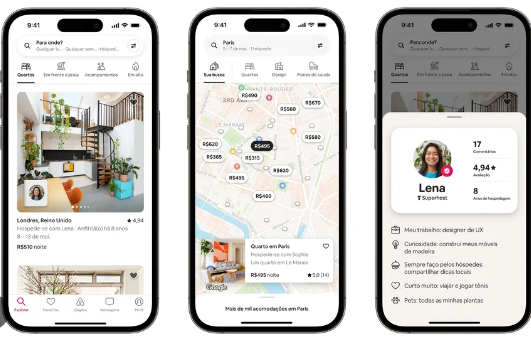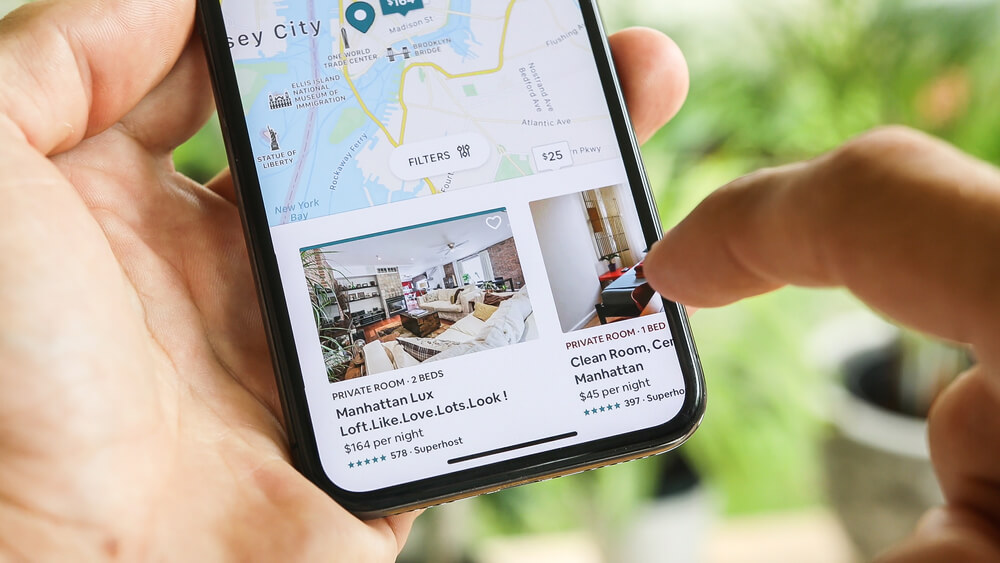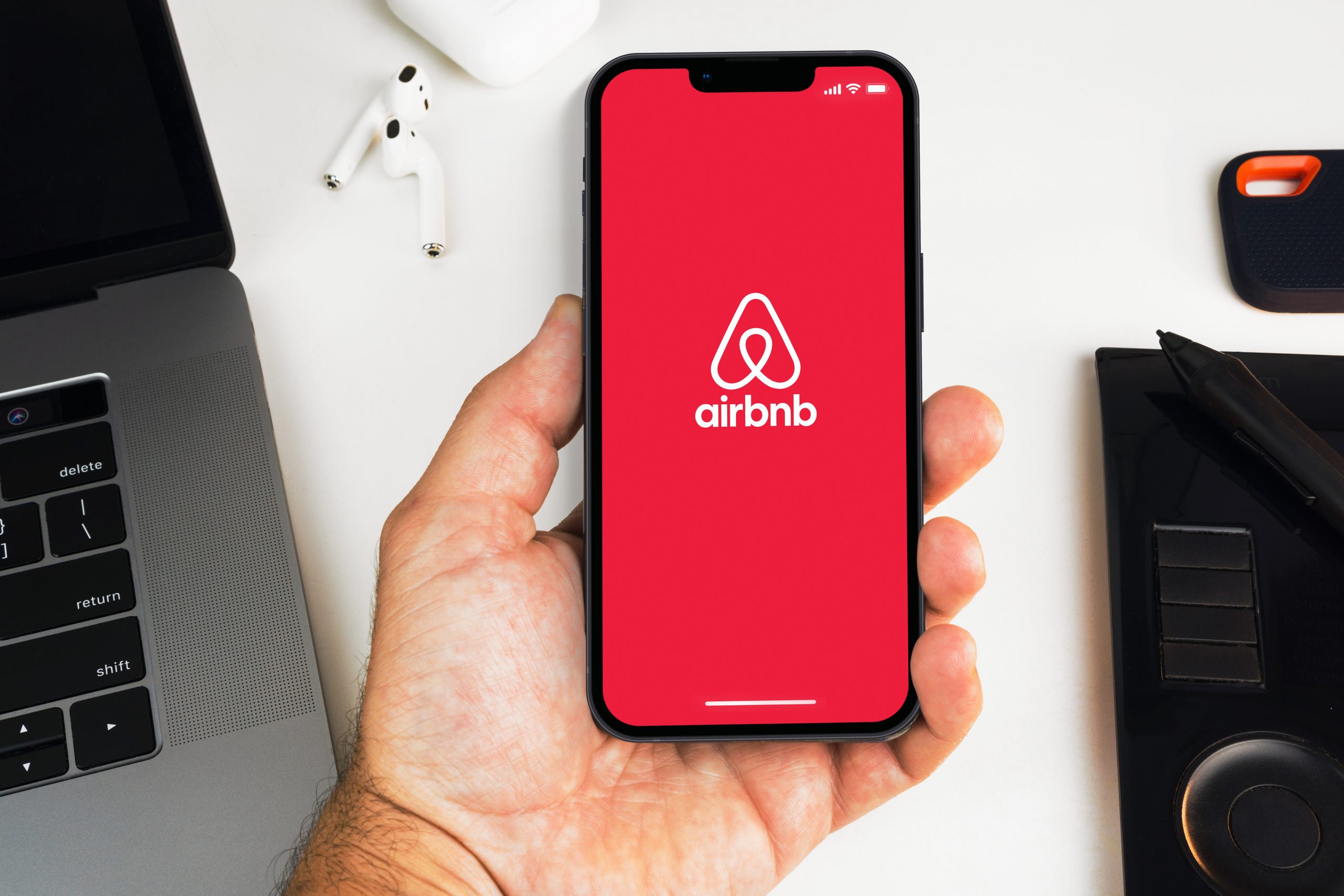Mastering Airbnb Keyword Search: How to Boost Your Listing's Visibility

Imagine having a gem of a property, tastefully decorated and equipped with all the amenities one could wish for, but it’s hidden in the depths of Airbnb’s search results. Unfortunately, this is a scenario that many hosts face.
In a platform with millions of listings worldwide, standing out is not just a luxury, it’s a necessity. The more visible your listing, the higher the likelihood of more bookings made, which in turn leads to better reviews and more revenue.
Keywords, in this context, act as the language that helps Airbnb understand what your listing offers. When strategically placed, they signal to the platform’s algorithm that your property is a suitable match for certain search queries. Understanding how to maximize the visibility of your listing using keyword search is crucial.
In this article, we’ll dive into the intricacies of keyword optimization tips for an efficient Airbnb SEO strategy. We’ll explore techniques and tips to select the most relevant keywords and integrate them into your listing to enhance visibility and increase bookings.
Understanding the Airbnb Algorithm for Keyword Search
A search algorithm is a digital engine that powers the platform, connecting travelers with the accommodations that best meet their preferences. Very much like Google’s framework, the Airbnb algorithm is a sophisticated set of instructions and calculations that analyze numerous aspects of listings to determine their relevance to a given search query.
When a traveler begins their search on the platform, they input various criteria such as location, check-in and check-out dates, number of guests, and desired amenities. The algorithm then springs into action, sifting through the vast database of listings to present options that align with these specifications.
Keywords here act as the linchpin between a host’s listing page and a traveler’s search. These are words and phrases that encapsulate the unique features, amenities, and attributes of a property. When a traveler types a word in a search query, the algorithm scours listing titles, descriptions, and tags for relevant keywords.
So, pertinent keywords in your listing can significantly impact its visibility in search results. However, it’s important to strike a balance. While these terms are vital, overloading your listing with them can actually harm your visibility. The key is to incorporate efficient keywords naturally, ensuring that they flow seamlessly within your listing page‘s description.
Other Factors Impacting Search Rankings
With keywords being the primary point for the listing’s ranking search engine, Airbnb’s algorithms also take into account an array of other factors when determining the ranking of listings. Some of the many factors among the key influencers include:
- Location;
- Positive reviews and ratings;
- Competitive pricing;
- Diverse amenities and features;
- Instant booking.
Understanding these factors and how they interact with keywords allows hosts to strategically hone their Airbnb listings for improved visibility.
Now, let’s dig deeper into specific strategies for effective keyword integration and overall Airbnb listing optimization.
Conducting Keyword Research
Keyword research is an integral part of your Airbnb SEO strategy and the prime point in your listing optimization journey. By conducting thorough keyword research, you equip yourself with the knowledge needed to effectively leverage your listing for maximum visibility.
To enhance Airbnb listing quality for search results, employing the right tools and resources can be a game-changer:
Airbnb’s Search Suggestions:
Start by utilizing the Airbnb search bar. As you type in keywords related to your listing, Airbnb provides suggestions. These suggestions are derived from real keyword search data, offering valuable insights into what potential guests are looking for;
Keyword Research Tools:
Tools like Google Keyword Planner, Moz’s Keyword Explorer, and Ubersuggest can help you identify popular search terms related to your listing. These tools provide metrics such as search volume and competitiveness;
Google Trends:
While not specific to Airbnb, Google Trends can offer insights into trending topics and search queries related to travel and accommodations. This information can be of great help for understanding broader market trends;
Competitor Analysis:
Tools like SEMrush or Ahrefs can be used to analyze the keywords that are driving traffic to your competitors’ listings. This can help you identify gaps and opportunities in your own SEO strategy;
Host Communities and Forums:
Engaging with host communities and forums allows gaining qualitative insights into the language and related phrases guests commonly use when searching for accommodations;
Social Media and Reviews:
Look for common terms or descriptors used by guests in reviews and social media posts related to your listing. These organic expressions can be excellent candidates for your listing.
Picking High-Impact Keywords
With a pool of potential keywords at hand, you should refine and select the most efficient ones that will not drive traffic to your listing to the top when printed in the search bar. The aspects to keep an eye on here are:
- Relevance: Ensure that the chosen words accurately represent the unique features, amenities, and location of your property. They should align with what potential guests are likely to search for;
- Search Volume: Consider the search volume associated with each keyword. While high-volume words can bring more traffic, they may also have higher competition. Balancing high and low-volume terms is key;
- Long-Tail Keywords: Don’t overlook such words, which are longer, more specific phrases. They often indicate a higher level of intent and less competition;
- Local Keywords: If your property is in a specific neighborhood or near popular attractions, incorporate location-based terms. This can help attract guests looking for accommodations in a particular area.
Crafting an Attention-Grabbing Title

The Airbnb listing title is your property’s first introduction to potential guests. It’s the headline that should not only capture attention but also provide essential information.
- Be Clear and Concise: Ensure that the title clearly conveys the most appealing aspects of your property. Avoid jargon or overly complex language. Try to be informative yet concise;
- Highlight Unique Features: If your property has standout features like a private pool, panoramic views, or proximity to popular attractions, make sure to include them in the title;
- Emphasize Location: Mentioning the neighborhood or city your property is located in can be a powerful draw for guests looking for specific locations;
- Invoke Emotion or Experience: Consider using words that evoke positive emotions or hint at the experience guests can expect. For instance, “Serene Retreat with Ocean Views” creates a vivid mental image;
- Mention Key Amenities: If your property offers noteworthy amenities like a fully-equipped kitchen, high-speed internet, or a cozy fireplace, don’t forget to mention them.
While keywords are of ultimate importance, remember to
- Focus on keywords directly related to your offering;
- Avoid repetition to prevent spamming;
- Maintain readability;
- Use synonyms to convey the same meaning; and
- Keep in mind potential guest needs and preferences.
It’s worth noting that guest preferences and market trends continuously evolve. Hence, it’s important to create different variations of your Airbnb listing title to see which one performs better. By regularly refining your listing title, you’ll catch up with changing market tendencies and will be able to stay at the top of search results.
Writing a Compelling Listing Description
The description section of your Airbnb listing is where you have the opportunity to paint a vivid picture of the experience guests can expect. It’s your chance to showcase what sets your property apart from the rest by highlighting the unique features and services you offer.
- Create Bullet Points or Sections: Break down your property’s characteristics and amenities into easily scannable sections or bullet points. This makes it simple for potential guests to quickly identify what makes your listing special;
- Prioritize Standout Features: Ensure that the most distinctive and appealing characteristics are exposed and emphasized. Whether it’s a private pool, stunning view, or unique architectural detail, highlight them early in the description;
- Use Descriptive Language: Visualize the fortes of your offer. Instead of just saying “beautiful view,” try “sweeping panoramic views of the city skyline.”;
- Address Potential Pain Points: If there are any potential drawbacks (e.g., proximity to a busy street), address them honestly but positively. For instance, “While centrally located, our soundproof windows ensure a peaceful night’s sleep.”;
- Consider Your Target Audience: Tailor your descriptions to the type of guests you want to attract. Thus, if your property is family-friendly, highlight features like a playground or kid-specific amenities.
Integrating Keywords
Keywords will make your description more visible and let it rank higher in the search results. Yet, using them randomly is not the best approach to follow. Here are a few tips on efficient keyword integration.
- Incorporate Seamlessly: Scatter relevant keywords throughout the description in a way that feels organic. They should flow naturally within the narrative you’re creating about your property;
- Provide Context: Ensure that key terms are used in context. If you’re highlighting a “spacious living area,” make sure to describe the space and its features in detail;
- Tell a Story: Craft a narrative around your property, emphasizing its unique qualities and the experiences it offers. Use keywords to enhance this narrative, rather than making them the sole focus;
- Avoid Overloading: Resist the urge to cram keywords into every sentence. Overuse can make the description sound forced and detract from the overall appeal;
- Emphasize Benefits: Instead of just listing features, focus on how those features benefit the guest. For instance, “A fully-equipped kitchen allows you to prepare home-cooked meals, saving you money on dining out.”
Incorporating Neighborhood-Specific Keywords
We’ve already highlighted the importance of mentioning locality-related terms throughout your Airbnb listing. It helps your listing connect with guests seeking accommodations in specific areas. Now, let’s look into how to do it effectively.
- Research Local Terms: Identify words that are commonly associated with your neighborhood. This could include the neighborhood’s name, nearby landmarks, or well-known streets;
- Integrate Naturally: Incorporate these words organically into your listing’s description and title. Use something like “Charming Apartment in the Heart of Historic Old Town”;
- Highlight Unique Neighborhood Features: Show what makes your neighborhood special. This could be its historic landmarks, vibrant nightlife, proximity to parks, or cultural diversity;
- Be Specific and Accurate: Ensure that the keywords accurately represent the location. Avoid using vague terms that may mislead guests.
By specifying local insights and introducing neighborhood-specific keywords, you’ll provide potential guests with additional information that helps them envision their stay at your property. This targeted approach can significantly enhance your listing’s appeal to travelers seeking a specific location or neighborhood experience.
Another useful tip for you is to add Bitcoin payment. You have no idea that a huge number of users are now using this method of payment. Some users have shared their experiences and said that the site how to buy Bitcoin in Canada helped them to understand all the intricacies. So take advantage of this advice!
Managing Reviews and Ratings on Airbnb listings
Though reviews are rather related to keyword search, guest feedback and ratings have a direct influence on your listing’s performance and visibility. Many guests filter and narrow their search results based on ratings.
For example: higher-rated listings are more likely to be considered by guests in their decision-making process. Likewise, the Airbnb algorithm takes reviews and ratings into account when determining the ranking of listings. Higher-rated properties are more likely to appear when you search Airbnb.
Consistently positive reviews contribute to your overall Airbnb scoring, which is an enduring representation of your property’s quality. Thus, a high rating can lead to sustained success. While negative reviews may be discouraging, they present opportunities for improvement.
So, by responding to feedback, both positive and negative, you’ll demonstrate your dedication to guest satisfaction. By addressing constructive criticism, for example, you’ll show your commitment to ensuring guest comfort by proposing specific solutions or alternatives to settle any issues or concerns raised.
A proactive approach to review and rating management will not only enhance your Airbnb listing visibility but also increase your repeat bookings, and long-term success as an Airbnb host.
Regularly Adjusting Your Keyword Strategy

To stay at the top of the Airbnb keyword search, you should review and update your keyword strategy regularly. To get data for analysis, it’s crucial to monitor the performance of your listings by keeping an eye on conversion rates, traffic sources, booking patterns, guest reviews and ratings, and revenue levels.
To make efficient adjustments to your keyword strategy within Airbnb SEO based on the acquired data:
- Review Search Terms: Analyze the search terms that lead guests to your listing. Identify which words are driving traffic and bookings;
- Evaluate Conversion Rates by Keyword: Determine which words and phrases lead to the highest conversion rates. These are the terms that best resonate with your target audience;
- Identify High-Performing Terms: Pinpoint words that consistently lead to bookings. You should prioritize in your listing;
- Optimize Low-Performing Keywords: If certain words and terms aren’t generating results, consider adjusting your listing to better align with guest expectations;
- Monitor Competitor Keywords: Keep an eye on relevant keywords that are driving traffic to competing listings. This can provide insights into effective keyword usage;
- Stay Updated on Airbnb Algorithms: Airbnb’s algorithm and best practices evolve over time. Subscribe to Airbnb and follow the Airbnb official blog and help center to track the platform’s recent updates.
Adaptability and responsiveness to changing data are key elements in maintaining and improving your listing’s visibility and performance in the long run.
Wrapping Up
As part of any effective SEO strategy, keywords are an integral part of Airbnb SEO too. So, optimizing the keyword search on the platform is not a recommendation but a vital necessity for any host seeking to increase their listing visibility and enjoy their offerings hitting the top lines of Airbnb search results.
Now, armed with these simple yet powerful keyword strategies, you can significantly enhance your listing’s chances of being discovered by potential guests. Just remember that the journey towards improved visibility is a dynamic process where each small adjustment and refinement contributes to a more compelling and enticing listing.






![Your Monthly iGMS Roundup [February 2020]](/content/images/size/w600/wordpress/2020/02/igms-roundup-feb-2020-cover.png)

